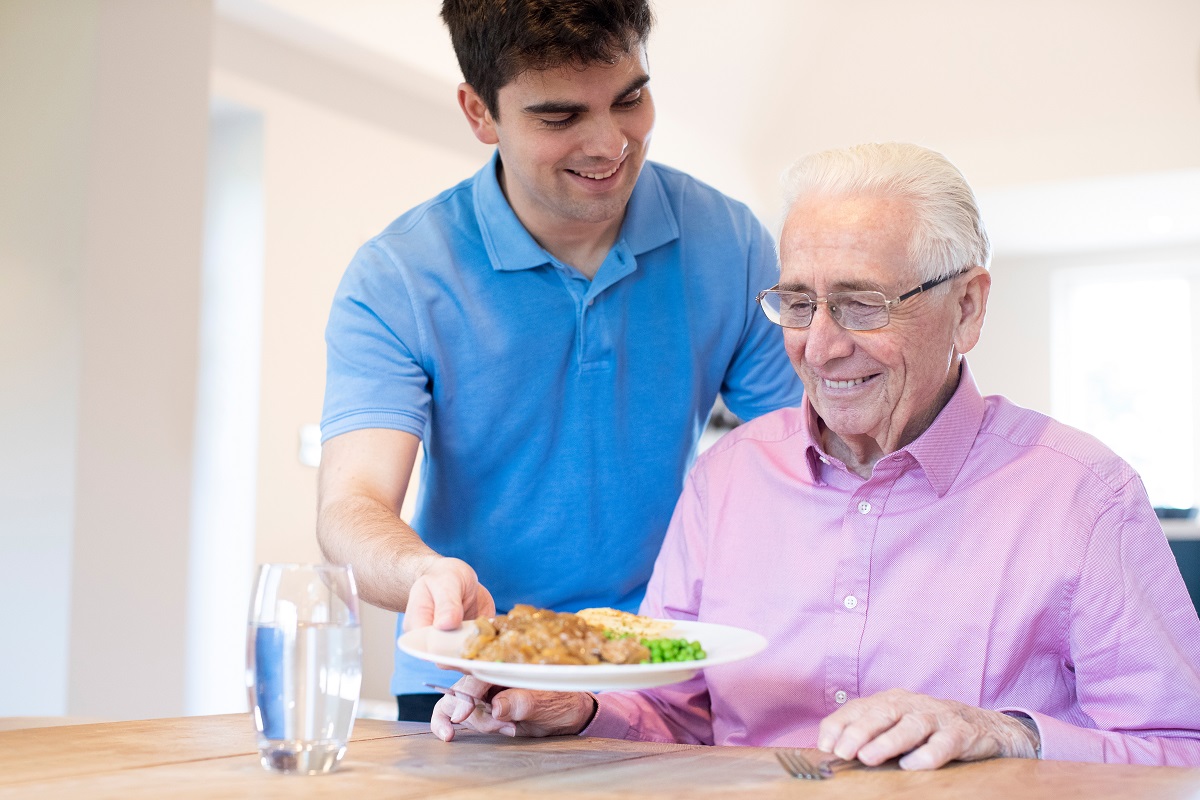What happens in late stage dementia?
You are probably dreading this part of the dementia journey because it sounds so bleak. Find out how to make late stage dementia or severe dementia a little easier on everyone
Could this be you?
The person you’re caring for has been living with dementia for a long time – perhaps many years. You’ve both had your fair share of problems but, you’ve coped admirably well. However:
• They now need round-the-clock care
• They rarely talk or have little conversation
• They no longer recognise you or any of their nearest and dearest
The final stages of dementia can be incredibly hard for family and friends, but it’s important to be realistic about what you can – or can’t – cope with, and to accept any help that you’re offered. Family carers are often under a great deal of strain during this part of the journey, so make sure not to neglect your own health or needs.
Four symptoms of late stage dementia
1. Increased frailty
Weight loss and other health issues, such as arthritis or a stroke, can lead the person you’re caring for to become increasingly frail and less mobile. Many people with dementia also gradually lose the ability to walk – they may start shuffling or prefer to stay seated most of the time.
How to help: help: There are many useful aids that can make it a bit easier to stay mobile. If the person you care about needs help getting around, take a look at our range of sturdy walking sticks which are both practical and stylish. If more support is needed, a mobility scooter could make every day activities a little easier and provide some much-needed independence. If a wheelchair is the best option, you can choose from a range of strong, comfortable wheelchairs.
2. Total reliance on others
People with late stage dementia usually need lots of help with eating, dressing, washing and using the loo. If this becomes too much for you to cope with, you might find it’s time to consider other options, such as a care home.
How to help: How to help: If you’re determined to keep caring at home, it could be useful to know more about eating and drinking aids, which can make mealtimes a bit easier to manage. Take a look at the easy eating and easy drinking ranges which contain some simple but clever ways to make eating and drinking less stressful.
3. Problems communicating
The person you care about may now have very limited verbal skills, but it’s still important to allow them to talk and express themselves if they want to. You, in turn, should continue talking to them as you normally would. They may also try to communicate in other ways. For example, some people may give clues through body language or facial expressions as to how they’re feeling.
How to help: If you’re concerned the person you love could be in pain or is simply unable to tell you something that might be important, try using a communication tool such as these visual assessment cards.
4. Severe memory loss
Even memories from childhood which were once so vivid may now seem hazy. The person you care for might also become increasingly disorientated. For example, believing they are newly married, or that you are their child not their partner.
How to help: Simple activities such as looking at photos can still provide comfort and enjoyment and may stir memories too. If you want to try something a little different, take a look at the Talking Photo Album.
Warning
Each person with dementia is unique and these symptoms are only a guide as to what may happen in the later stages of dementia. Don’t take them too literally.
If you would prefer to consider a different approach to the dementia journey, click here.
Good to know
• There are still ways to make life more pleasant and more comfortable for your loved one by stimulating their senses. For example, try playing their favourite music, giving them a hand massage, or spraying a familiar perfume around their room.
• You aren’t alone. Get support from other people who are going through something similar, either by joining a local support group or by going online and talking to someone in our online support group The Unforgettable Dementia Support Group. Go here to join now and meet some like-minded people.
Sources:
https://www.alzheimers.org.uk/about-dementia/symptoms-and-diagnosis/how-dementia-progresses/later-stages
https://www.alz.org/alzheimers-dementia/stages
SHARE
Explore more




